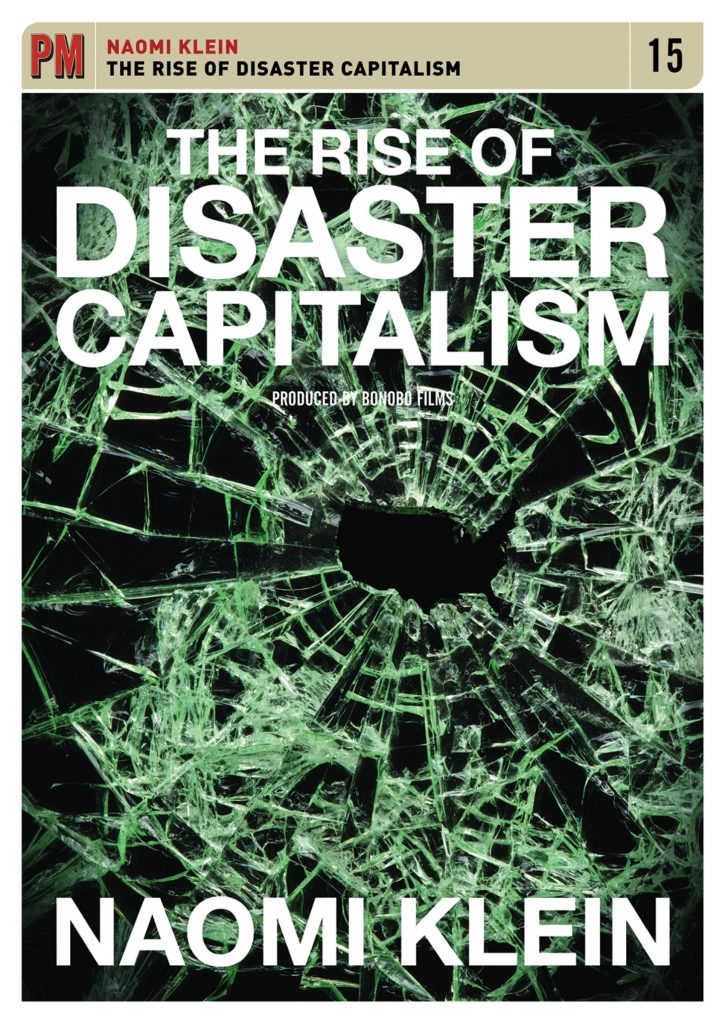By Brittany Shoot
Feminist Review
Recorded from a lecture in May 2008, The Rise of Disaster Capitalism
is an engaging, well-crafted talk by economist-writer-activist Naomi
Klein about the problems of increasingly pervasive neoliberal
privatization of land and resources on a global scale. Based on the same
premise as her most recent book, Klein’s lecture is aimed at people who
have not necessarily read The Shock Doctrine—in
part, she said, because the book was “hideously overpriced in
hardback.” The lecture marked the release of the book in paperback, as
well as its availability in Spanish.
In the book and for the
purposes of this talk, Klein’s analysis is centered on the idea that
widespread privatization of public spaces and services often takes place
in the aftermath of large shocks: military coups, economic crises,
natural disasters. This pattern has played out repeatedly in Latin
America, and most recently, it has been seen in Iraq, New Orleans, and
in the wake of the 2004 tsunami that ravaged Thailand, Sri Lanka, and
Indonesia, among others. Though Burma was already run by a crony
capitalist regime before the 2008’s Cyclone Nargis destroyed significant
infrastructure and killed tens of thousands of civilians, the disaster
accelerated the country’s last major wealth grab. Forty-three private
reconstruction contracts were already in place before any relief had
been done.
Anecdotally, Klein cites a recent National Science
Foundation study that shows that conservatives are generally happier
people, better able to rationalize social and economic inequality.
Calling the mindset an “elaborate form of self-deception” and a
“political sedative after the fact,” she explains that in reality,
neoliberal policies treat entire nations and peoples as testing grounds
and laboratory subjects. In the wake of large-scale disasters and
upheaval, people are often rightfully focused on self-preservation. By
the time new constitutions have been put into place, water supplies have
been privatized, and public school systems have been turned into
privately-funded charter schools, it is often too late to debate—let
alone reverse—such massive systemic changes.
What is crucial to
remember is that none of these events are inevitable. Indeed, they are
being resisted, often most effectively by indigenous groups. While
certainly not simple problems with easy solutions, Klein believes there
are two ways to respond. We can develop policies and technologies that
change our way of life; or, as is increasingly and frighteningly common,
we can devise policies and technologies that can be used to protect and
shield ourselves from those we have enraged and displaced.
If
you don’t live in an urban area likely to be visited by a luminary like
Klein, this skillfully produced lecture is an excellent way to
supplement the experience of an in-person lecture. A portion of DVD
proceeds go to War On Want.







